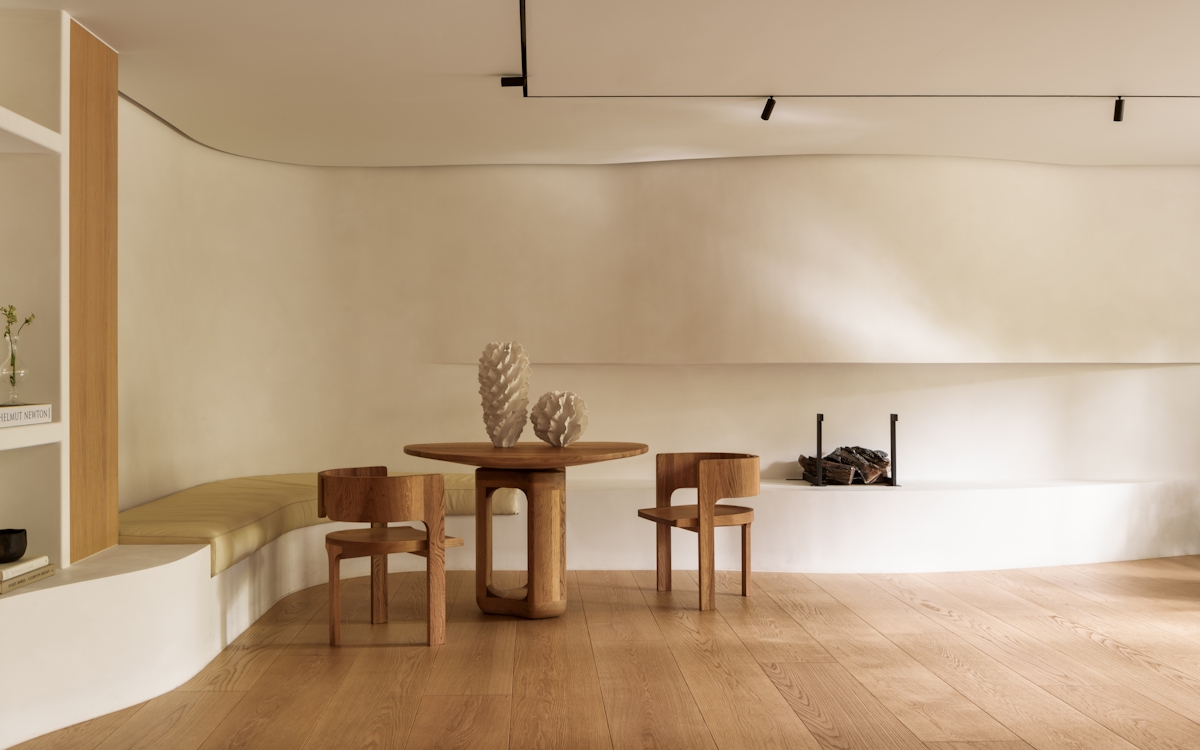Wednesday marked the launch of United in Design—a coalition of interior design industry professionals including editors, designers, manufacturers and educators united in the cause of eradicating inequality in the interior design industry. The organisation is founded by interior designers Alexandria Dauley of Dauley Design and Sophie Ashby of Studio Ashby in a directed effort to begin to tackle and resolve the now near-universally understood problem.


“United in Design’s core objective is to deliver an equal opportunity pathway to entry into the interior design industry by creating a UK-wide movement with an actionable roadmap for increased diversity in all sectors of the industry—from design studios, makers and suppliers to individuals and magazines,” the United in Design website states clearly.
On 4th June, along with many others in the industry, Co-founder Sophie Ashby (who is white) posted a heartfelt public statement on her studio’s Instagram account in response to the murder of George Floyd, a Black man, by Minneapolis police officers in the USA, and the ensuing global anti-racism revolution. In the statement, Sophie recognised her studio’s shortcomings in regards to its lack of diversity in hiring and the general elitism which plagues the interior design industry:
“The profession of being an interior designer has the badge of elitism stamped all over it, a luxury service reserved for the wealthy and few. But—HOME— home is everything, it means family, safety, shelter, warmth, comfort… if you’re lucky, it’s the framework to a life well-lived.”
At the end of her message, she committed to educating herself, listening to underrepresented people in the industry and to “[making] sure Studio Ashby is not adding to the problem, but instead is part of the necessary change”. And it seems that that promise is being taken seriously.
Since then, Sophie has partnered with fellow designer Alexandria to create United in Design. Alexandria’s story represents the alternate narrative to Sophie’s experience. Trained at KLC School of Design where she also tutored, Alexandria is a Black woman and has first-hand experience of the inequalities within the industry. Simultaneous to Sophie’s statement, Alexandria was working towards her own solution by reaching out to leading industry figures, educating them on the benefits of programmes which specifically address inequality. She explains, “The issues of inequality and diversity across the interior design industry need to be addressed—the situation needs to change and the time to instigate that long-lasting, tangible change is now. We need to make interior design an accessible and obtainable career choice for people from diverse backgrounds.” Together with Sophie and a slew of major industry names, she has created a more accessible entryway to the conversation.
United in Design is joined by leading British design voices, including many LuxDeco 100 designers. Writer and author Michelle Ogundehin and Founder of Interior Educators Graeme Brooker serve as Trustees and are joined by Chairs Simon Hamilton, Grant Pierrus and Sarah Ahluwalia. The steering committee boasts Charu Gandhi of Elicyon, Emily Wilder and Simon Rawlings of David Collins Studio, Joyce Wang, Katharine Pooley, Laura Hammett, Martin Brudnizki, Natalia Miyar and Sophie Paterson, whilst Beata Heuman, Emma Pocock of Turner Pocock, Fran Hickman, Peter Mikic, Tiffany Duggan of Studio Duggan, Natash Greig of Veere Grenney Associates and Shayne Brady and Emily Williams of BradyWilliams serve as partners.
Already the new initiative has been met with acclaim—a hopeful sign that the creative discipline and those who participate in it are ready for much-needed change. As they should be. After all, the extent to which the interiors that we are inspired by, design, build and write about are welcoming is one of the key factors in their success. It should feel wrong then that the industry be anything less than welcoming to all.
The United in Design platform references “specifically the lack of representation of Black, Asian, Ethnic minority and low socio-economic communities” and one would hope that the same zeal will be found in the future for other marginalised groups, including differently-abled people. The result will be a vibrant industry which is far more representative of the world in which we live and all the more prolific for it.
“United in Design will be working with the industry to tackle the obstacles preventing [diversity], correcting the balance and levelling the playing field,” Alexandria assures. This will be done via partnerships with established educational programmes, industry professionals and sponsors. Participants must commit to three of the organisation’s seven pledges which “encourage partners to unlock doors and inspire others within the industry to share their wealth of expertise and time with those who need it most.”
United in Design might be in its infancy, but the goals are far-reaching. The founders already have scholarships, apprenticeships and bursaries in their sights. At least two key industry resource organisations—Creative Mentor Network and Interior Educators—and the organisation’s Resource Hub, hosted on its website, will be on hand to offer individuals support and guidance and to help them secure mentorships and employment.
Along with so many in the industry, LuxDeco wholeheartedly supports United in Design and we anticipate that this will be the beginning of a new era of design, a building on the already rich history of British furniture and interior design and one of which we can be even prouder.

